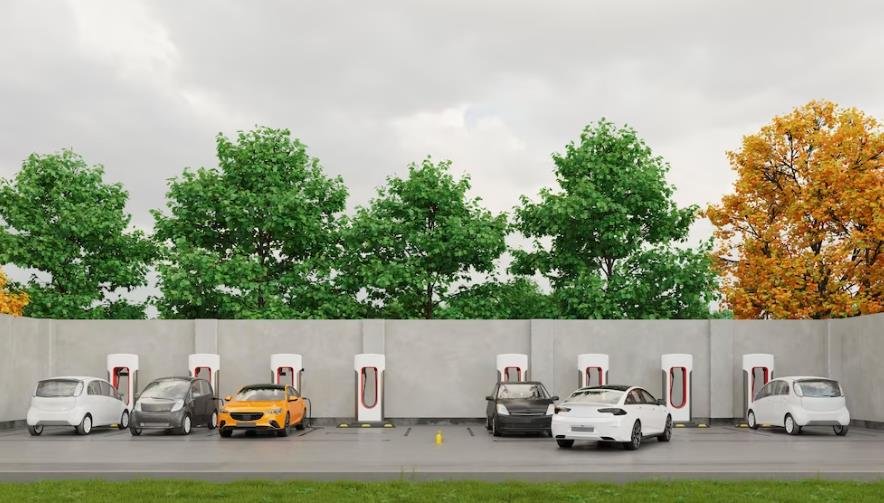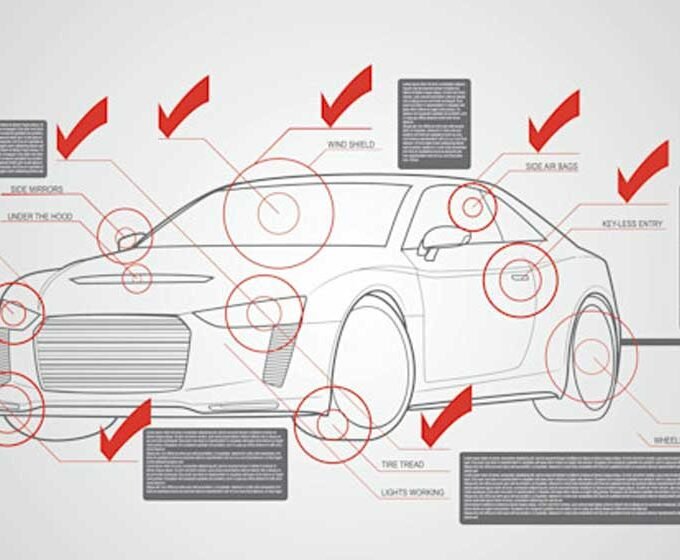In recent years, the adoption of electric vehicles (EVs) has gained significant momentum, driven by the need to reduce greenhouse gas emissions and dependence on fossil fuels. As more businesses and organizations embrace electric mobility, managing the charging needs of an entire fleet becomes a crucial consideration. This is where telematic electric vehicles and fleet charging come into play, offering innovative solutions for maximizing energy efficiency and optimizing charging infrastructure.
Understanding Energy Efficiency in Electric Vehicle Fleet Charging
Energy efficiency lies at the core of sustainable electric vehicle fleet charging. It involves minimizing energy waste during the charging process and ensuring that the energy consumed translates into maximum vehicle range. By understanding the factors that affect energy efficiency, fleet managers can make informed decisions to reduce operational costs and environmental impact. Factors such as charging equipment efficiency, battery state of health, and charging time optimization all contribute to the overall energy efficiency of the fleet charging process.
Optimizing Charging Infrastructure for Energy Efficiency
Fleet managers should assess the charging requirements of their electric vehicles and design an infrastructure that caters to those needs. This includes installing appropriate charging stations, considering the power capacity of each station, and strategically locating them to minimize energy losses. Furthermore, the integration of intelligent charging solutions, such as load management systems and demand response capabilities, can help balance power demand and reduce energy peaks during charging.
Utilizing Telematics for Effective Fleet Charging Management
Telematics plays a pivotal role in effective fleet charging management. Telematic electric vehicles are equipped with advanced communication systems that enable real-time data exchange between the vehicles, charging infrastructure, and fleet management software. This connectivity allows fleet managers to monitor the charging status, battery levels, and charging history of each vehicle remotely. By utilizing telematics, fleet managers can optimize charging schedules, manage charging sessions, and even prioritize charging based on vehicle usage patterns, thus improving energy efficiency and reducing costs.
Implementing Smart Charging Strategies for Energy Savings
Smart charging strategies offer immense potential for energy savings in fleet charging operations. By implementing techniques such as time-of-use charging, where vehicles are charged during off-peak hours when electricity prices are lower, fleet managers can significantly reduce energy costs. Additionally, load balancing algorithms can be employed to distribute the charging load evenly across multiple charging stations, preventing overload situations and optimizing energy consumption. Such strategies not only enhance energy efficiency but also promote grid stability and support the integration of renewable energy sources.
Leveraging Data Analytics for Energy Efficiency in Electric Vehicle Fleet Charging
Data analytics plays a crucial role in identifying patterns, optimizing charging behavior, and predicting future energy requirements. By analyzing charging data collected through telematic systems, fleet managers can gain insights into individual vehicle efficiency, charging patterns, and energy consumption trends. This information can be used to identify opportunities for further energy optimization, such as adjusting charging rates, optimizing battery management systems, or identifying potential charging infrastructure upgrades. Leveraging data analytics empowers fleet managers to make data-driven decisions that enhance energy efficiency across the entire fleet.
Balancing Power Demand and Load Management in Fleet Charging
Managing power demand is essential to ensure the stability of the grid and prevent overloads during fleet charging. Load management systems can be implemented to control the charging process based on the available power capacity and prioritize charging based on operational requirements. By dynamically adjusting the charging rate of each vehicle in response to grid conditions, fleet managers can avoid excessive demand peaks, reduce strain on the electrical infrastructure, and optimize energy consumption, resulting in improved energy efficiency.
Importance of Scheduling and Coordination in Telematic Electric Vehicle Charging
Efficient scheduling and coordination of telematic electric vehicle charging are vital for maximizing energy efficiency. By strategically planning charging sessions based on vehicle availability and operational needs, fleet managers can avoid unnecessary downtime and ensure that vehicles are charged optimally. Additionally, coordination with utility companies and other stakeholders is crucial to take advantage of time-of-use rates, demand response programs, and other incentives that can further enhance energy efficiency and reduce operational costs.
Integrating Renewable Energy Sources for Sustainable Fleet Charging
Integrating renewable energy sources into fleet charging operations is a key aspect of sustainable and energy-efficient practices. By coupling EV fleet charging infrastructure with solar, wind, or other renewable energy systems, fleet managers can reduce their dependence on grid electricity and decrease their carbon footprint. Through advanced energy management systems and smart charging algorithms, renewable energy sources can be optimized to charge vehicles when the supply is abundant, reducing reliance on fossil fuels and maximizing energy efficiency.
Monitoring and Maintenance of Telematic Electric Vehicle Fleet Charging Systems
Regular monitoring and maintenance of fleet telematics devices in electric vehicle charging systems are crucial to ensure optimal performance and energy efficiency. Fleet managers should implement proactive maintenance practices to detect and address issues promptly, such as faulty charging equipment or deteriorating battery health. Real-time monitoring of charging sessions and system performance allows for quick intervention when anomalies occur, minimizing energy waste and maximizing the reliability and efficiency of the fleet charging infrastructure.
Conclusion
Maximizing energy efficiency in electric vehicle fleet charging requires a comprehensive approach that combines optimized charging infrastructure, effective management through telematics, smart charging strategies, data analytics, load management, scheduling and coordination, renewable energy integration, and diligent monitoring and maintenance. By implementing these strategies, fleet managers can reduce energy costs, minimize environmental impact, and contribute to a sustainable and energy-efficient future for electric vehicle fleets.
















